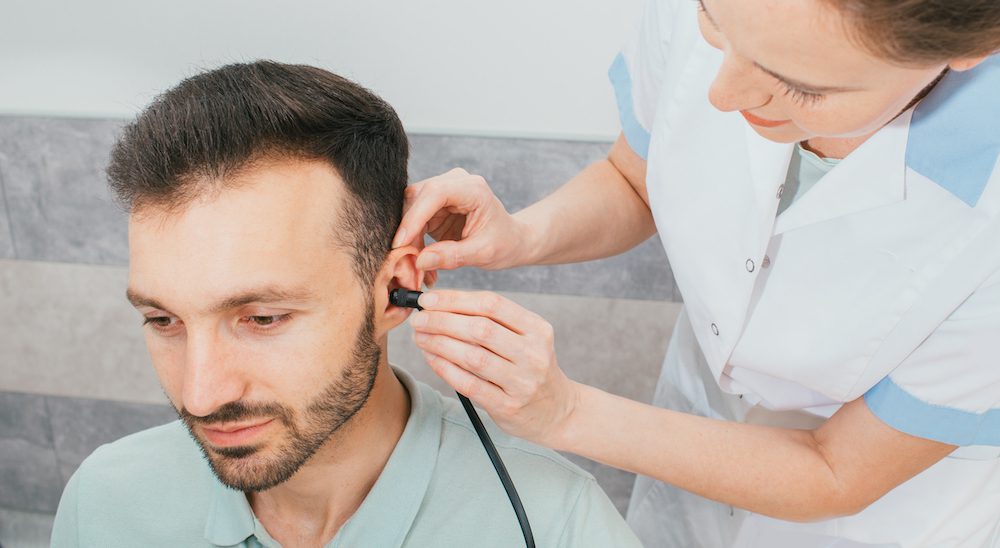Hearing loss can affect anyone, often progressing gradually without noticeable symptoms. A hearing test is a critical tool for early identification, helping individuals manage and mitigate the effects of hearing issues. This diagnostic process uses scientific methods to pinpoint concerns before they significantly impact daily life.
- Comprehensive Evaluation of Hearing Abilities
Hearing tests assess how well an individual can perceive different sounds across various frequencies.
- Pure-Tone Audiometry: This common test plays tones at different pitches and volumes, identifying the quietest sound a person can hear.
- Speech Recognition Testing: By evaluating how well someone understands spoken words, this test highlights specific challenges with clarity.
- Bone Conduction Testing: This method checks if hearing loss is due to problems in the inner ear or issues with sound conduction.
These tests provide a complete picture of auditory health, making early detection possible.
- Identification of Subtle Changes
One of the most significant advantages of regular hearing tests is their ability to identify changes that may otherwise go unnoticed.
- Gradual Decline Detection: Many individuals are unaware of slow, progressive hearing loss until it becomes severe.
- Frequency-Specific Issues: Tests can reveal difficulty hearing high-pitched sounds or understanding conversations in noisy environments.
- Baseline Comparisons: Having a baseline test allows audiologists to track changes over time, helping them catch issues early.
Even slight changes in hearing can indicate larger problems that require attention.
- Understanding Types of Hearing Loss
Hearing tests help pinpoint whether the issue is related to sound transmission, sensory perception, or both.
- Conductive Hearing Loss: Caused by blockages or damage in the outer or middle ear, such as earwax buildup or infections.
- Sensorineural Hearing Loss: Resulting from damage to the inner ear or auditory nerve, often due to aging, noise exposure, or genetic factors.
- Mixed Hearing Loss: A combination of conductive and sensorineural factors.
Understanding the type of hearing loss guides audiologists in recommending appropriate interventions.
- Assessment of Underlying Health Concerns
Hearing loss can sometimes be a symptom of broader health issues.
- Neurological Conditions: Problems with the auditory nerve can indicate disorders like multiple sclerosis.
- Circulatory Issues: Hearing problems may result from insufficient blood flow to the inner ear.
- Infections and Injuries: Chronic ear infections or trauma can lead to hearing loss over time.
Identifying these root causes ensures a holistic approach to treatment.
- Benefits of Early Detection
Catching hearing loss early has significant advantages for long-term health and quality of life.
- Improved Treatment Options: Interventions like hearing aids or therapies are more effective when issues are identified early.
- Prevention of Cognitive Decline: Untreated hearing loss has been linked to conditions such as dementia and memory loss.
- Better Communication Skills: Addressing hearing issues promptly minimizes their impact on personal and professional interactions.
Regular hearing tests ensure individuals can maintain an active and engaged lifestyle.
- Diagnostic Tools Used in Clinics
Modern clinics, such as Clinique Audiologie Montréal, utilize advanced technologies to ensure accurate results.
- Tympanometry: Measures how well the eardrum responds to sound and pressure.
- Otoacoustic Emissions (OAEs): Assesses inner ear function by detecting sound vibrations produced by the cochlea.
- Real-Ear Measurements: Verifies how well hearing aids amplify sound in a patient’s ear.
These tools enhance the precision of diagnoses and enable tailored care.
Conclusion
Hearing tests play a vital role in identifying hearing loss at an early stage, ensuring timely intervention and management. By assessing subtle changes, understanding the type of hearing loss, and addressing potential underlying conditions, professionals ensure individuals maintain their hearing health. Clinics like Clinique Audiologie Montréal provide comprehensive evaluations to help individuals stay proactive about their auditory wellness.




